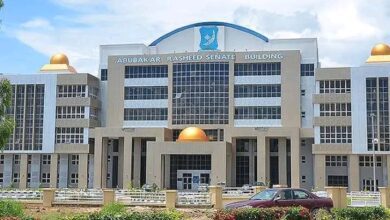Top 10 Colleges of Education in Nigeria

Physical and health education (PHE) plays a crucial role in shaping well-rounded individuals equipped with the knowledge, skills, and attitudes to lead healthy and fulfilling lives.
In Nigeria, a country committed to fostering a healthy citizenry, PHE has gained prominence in the educational landscape.
To cater to this growing demand, several Colleges of Education (COEs) offer comprehensive dual-major programs in Physical and Health Education, preparing graduates to excel in the field.
Here, we unveil the top 10 COEs in Nigeria that stand out for their academic excellence, well-equipped facilities, and dedicated faculty in the realm of Physical and Health Education:
Federal College of Education (FCE), Zaria
Nestled in the heart of Kaduna State, FCE Zaria boasts a longstanding reputation for its rigorous PHE program. The college’s sprawling campus houses modern sports facilities, well-stocked laboratories, and a team of experienced lecturers who are passionate about nurturing future PHE professionals.
Adeyemi College of Education (ACE), Ondo State
ACE, located in the serene town of Ondo, has earned a name for its holistic approach to PHE education. The college’s curriculum emphasizes the integration of physical activity, health promotion, and social-emotional learning, preparing graduates to address the multifaceted aspects of well-being.
Alvan Ikoku College of Education (AICE), Owerri
AICE, situated in Imo State, stands out for its commitment to innovation in PHE teaching methodologies. The college embraces technology to enhance learning, incorporating interactive simulations, virtual reality experiences, and data-driven assessments to engage students and foster deeper understanding.
Kwara State College of Education (KWCOE), Ilorin
KWCOE, established in Kwara State, has carved a niche for its emphasis on practical training in PHE. The college provides ample opportunities for students to apply their theoretical knowledge in real-world settings through internships, community outreach programs, and participation in sporting events.
Tai Solarin College of Education (TASCE), Ogun State
TASCE, located in Ogun State, prides itself on its commitment to producing well-rounded PHE graduates who are not only knowledgeable in their field but also possess strong communication, leadership, and critical thinking skills. The college’s curriculum incorporates workshops, seminars, and guest lectures to enhance students’ professional development.
Federal College of Education (FCE), Osiele
FCE Osiele, situated in Edo State, has gained recognition for its focus on research and evidence-based practices in PHE. The college encourages students to engage in research projects, participate in conferences, and stay abreast of the latest advancements in the field.
Ibrahim Badamasi Babangida University (IBBU), Lapai
IBBU, located in Niger State, offers a unique PHE program that integrates traditional African health practices with modern Western approaches. This holistic approach prepares graduates to address the diverse health needs of communities in Nigeria.
University of Nigeria, Nsukka (UNN), Enugu State
UNN, a renowned institution in Enugu State, provides a comprehensive PHE program that emphasizes the importance of physical activity in disease prevention and health promotion. The college’s facilities include state-of-the-art exercise physiology labs, human performance testing equipment, and specialized counseling services.
University of Ibadan (UI), Oyo State
UI, a prestigious university in Oyo State, offers a rigorous PHE program that equips graduates with the knowledge and skills to teach physical education in secondary schools, design and implement health promotion programs, and conduct research in the field.
University of Lagos (UNILAG), Lagos State
UNILAG, a leading university in Lagos State, offers a dynamic PHE program that integrates community engagement and social responsibility into the curriculum. Students gain valuable experience working with underserved communities to promote health and wellness through various outreach initiatives.
FAQs
What are the career prospects for graduates of Physical and Health Education programs?
Graduates of Physical and Health Education programs can pursue diverse career paths in a variety of settings, including schools, healthcare facilities, community organizations, sports and fitness industries, and research institutions. They can also become health educators, fitness instructors, sports coaches, or pursue further education to specialize in areas such as sports medicine, athletic training, or public health.
What are the admission requirements for Physical and Health Education programs in Nigeria?
Admission requirements for Physical and Health Education programs vary across institutions, but typically include a minimum score in the Unified Tertiary Matriculation Examination (UTME) and relevant O’Level subjects, such as Biology, Physics, and Chemistry. Some institutions may also conduct additional entrance exams or interviews.
What are the facilities like at COEs in Nigeria?
COEs in Nigeria typically have well-equipped facilities, including laboratories, libraries, and music studios. These facilities provide students with the resources they need to succeed in their studies.
What is the quality of teaching like at COEs in Nigeria?
The quality of teaching at COEs in Nigeria varies from institution to institution. However, most COEs have a strong reputation for providing quality teaching.





